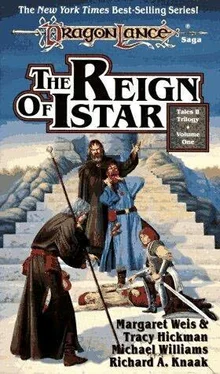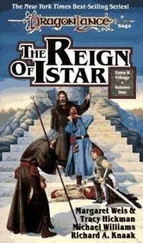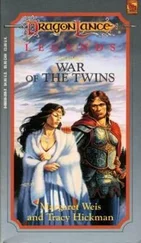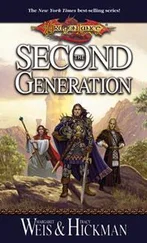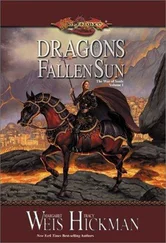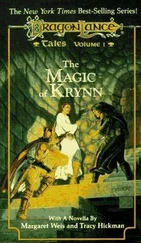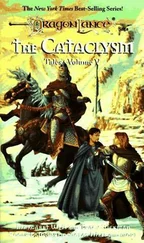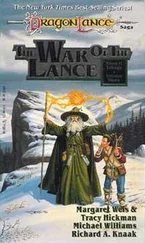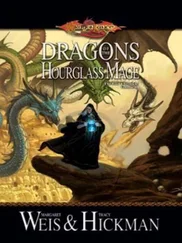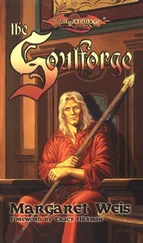Margaret Weis - The reign of Istar
Здесь есть возможность читать онлайн «Margaret Weis - The reign of Istar» весь текст электронной книги совершенно бесплатно (целиком полную версию без сокращений). В некоторых случаях можно слушать аудио, скачать через торрент в формате fb2 и присутствует краткое содержание. Жанр: Фэнтези, на английском языке. Описание произведения, (предисловие) а так же отзывы посетителей доступны на портале библиотеки ЛибКат.
- Название:The reign of Istar
- Автор:
- Жанр:
- Год:неизвестен
- ISBN:нет данных
- Рейтинг книги:5 / 5. Голосов: 1
-
Избранное:Добавить в избранное
- Отзывы:
-
Ваша оценка:
- 100
- 1
- 2
- 3
- 4
- 5
The reign of Istar: краткое содержание, описание и аннотация
Предлагаем к чтению аннотацию, описание, краткое содержание или предисловие (зависит от того, что написал сам автор книги «The reign of Istar»). Если вы не нашли необходимую информацию о книге — напишите в комментариях, мы постараемся отыскать её.
The reign of Istar — читать онлайн бесплатно полную книгу (весь текст) целиком
Ниже представлен текст книги, разбитый по страницам. Система сохранения места последней прочитанной страницы, позволяет с удобством читать онлайн бесплатно книгу «The reign of Istar», без необходимости каждый раз заново искать на чём Вы остановились. Поставьте закладку, и сможете в любой момент перейти на страницу, на которой закончили чтение.
Интервал:
Закладка:
One dwarven record postdates 10 PC, and this is unusual for not only the date, but that once again we encounter our friend, Horgan Oxthrall — though only in a peripheral sense. The record itself is the history of a battle that was fought at Stone Pillar Pass, around 7 PC. It is the last known contact, in human records, with the Khalkist dwarves.
It seems clear, as claimed by Istar, that the Kingpriest's invasion of the mountains in 7 PC was considerably more successful than had been the attempt of a century and a decade before. However, the Istarian tales of great victories and righteous massacre of the "dwarven heathens" are, at best, grotesque exaggerations.
For one thing, evidence indicates that this was a war with few battles. Indeed, I can find evidence of only one major skirmish. It occurred on the Stone Pillar Pass road and is hailed by the Istarian histories as the Kingpriest's greatest victory — a "rout" of the defenders.
There is a note in one of the scrolls about this battle, however, and it is interesting to contrast the dwarven point of view with that of the humans. From the dwarven perspective, the engagement is regarded as a moderately successful holding action. A gorge in the road was held for one day, and then abandoned — as so many dwarven positions were abandoned in this war.
Indeed, it seems as though the dwarves fought merely to gain time for a withdrawal into a more remote, unassailable position. Finally, they were able to fall back so far that the humans could no longer find them.
In his arrogance, the Kingpriest declared the war "won," his enemies "destroyed." The truth seems to be that the dwarves simply yielded the mountains to the humans and disappeared. Their escape route and destination remain one of the great mysteries of the world.
Forgive me, Your Grace, I wander. There are two unique points associated with the Stone Pillar Battle. I feel confident enough of their veracity to report them.
First, the curious reference to Horgan Oxthrall, who once again plays a role on the stage of history. He was the commanding general of the dwarven army standing against Istar. (I get ahead of myself, Your Grace. A new thane, Rankilsen, had taken the throne. Oxthrall's banishment ended in 12 PC. The venerable warrior had been readmitted into society. He took command of the field army shortly thereafter.)
Second is a tale that defies ready explanation, yet is referenced enough to compel its inclusion here. As the battle waned, the human forces — with rare initiative — attempted to encircle the dwarven army. Reports indicate that this tactic almost succeeded, save for the intervention of a sudden reinforcement. An unexpected brigade marched out of the mountains in support of the dwarves, breaking the human flanking action and allowing the dwarven army to escape.
The curious thing is the identity of this rescuing brigade: you see, all of my sources are adamant in their insistence that the army of Khalkist was saved by a brigade of Ogres! Where they came from, where they went — these are questions that will entice future historians. What I know is this: The ogres fought as allies with the dwarves against Istar and then, like the dwarves themselves, disappeared.
Implausible? Certainly. But it seems to be a fact.
I have to wonder, as I know you, Excellency, yourself, must be wondering: Could this have been a return of the boon, a life for a life?
Gobasch and Horgan meet again on the field, the bodies of the shattered human army scattered like trampled weeds around them.
"I come onto your lands again, dwarf," says the threetusked ogre, his jowled face wrinkling into a wry grin.
Horgan looks up at the beast as his army escapes, filtering into their caves and tunnels, turning their backs on a sun that most of them, during their lifetime, will never again behold.
"I thank you for coming," Horgan says, quietly.
The two clasp hands awkwardly. The sun sinks, casting mountain shadows across the human camp in the valley. Multitudes of fires blink in the darkness, and drunken revelry begins. To the humans, it was a "victory"
"They are your mountains now," adds the dwarf, turning to join his people. "Care for them well."
"We shall do our best," Gobasch replies.
I hear a noise at the door, Your Grace. It is my host, returning with his mysterious burden. I see — he brings me the skull of the messenger, this lone courier who brought the secrets of the dwarves into this remote range before the Cataclysm! My historian's heart thrills for their brave hero, perishing so that his words could be read in a future age.
Who is this brave soul? Why did he strike out, alone, to carry the tale of history?
Imagine my shock, Excellency, when the cheesemaker holds out the whitewashed skull, the remains of this courageous figure. For the skull belongs to an ogre! From the jaws jut three yellowed, but clearly recognizable, tusks.
As always, Excellency, I seek the truth in your name;
Your Humble and Devoted Servant,
Foryth Teel, Scribe of Astinus
Filling The Empty Places
The minotaur fell to his knees on the cracked, filthy cobbles of Beggar's Alley. Covered with rough red fur, the man-beast had the head of a bull, horns as long as my forearm, hair like a mane growing down between his shoulder blades. He foamed from the corners of his mouth like an animal.
I'd taken the minotaur two days before in an unexpected end to a fruitless search for heretics. He'd come at me like a storm, rising up out of the tall savannah grass, a knife in each fist; charged me roaring, dark eyes afire with battle-joy. Minotaurs don't much like humans or anyone else, and they do love to fight. But this one, it seemed, hadn't reckoned on my horse. The gray reared high, hooves flailing, and the minotaur went down before he knew what had hit him. He stayed senseless long enough for me to get the manacles, hobbles, and chains on. They have a strength beyond believing, those horned man-beasts. Bound and hobbled is the only way you can take 'em prisoner.
I never liked bringing live heretics to Istar, but sometimes — like in the heat of summer, when you don't really want to be traveling with the dead — you have to. That's the way of things and seasons, and that's the way I was working in that long, hot summer of my thirtyfifth year. By then I'd been fifteen years in the bounty trade. I'd had good times and bad, pockets filled with gold and just as often empty. In Istar they called me "Hunter-Doune," and I was good at my work.
Fair quiet it was in Beggar's Alley that evening, but for the minotaur cursing and panting on the cobbles. Rats ran in the filthy gutters. Tumbledown shacks and unpainted, drab houses huddled together, empty and looking lonely. At sunset the panderers and pickpockets did a better trade over by the great temple. From a distance — beyond the alley, beyond the market and the slave auction — rose a hymn, a gathering of elven voices, as soft and sweet as any dream of what song should be. The holy choir was beginning evening devotions. Elven women, famous throughout the world for their piety, lifted eerily pure voices in praise to the gods of good. Tonight they celebrated wise Paladine and his gentle, compassionate Mishakal.
The minotaur, struggling to his feet again, lifted his dark, homed head. He spat in the direction of the temple. I should have kicked him for it, but because no one was near to see what could be considered my own heretical omission, I let the minotaur have his way. I wasn't one for tormenting prisoners. It's bad business.
I had a partner once — a mountain dwarf. That was all right, no chargeable heresy in those days to be seen with a dwarf. Toukere Hammerfell, his name was. He'd been in the bounty trade longer than I had, and I remember all the advice he gave me.
Читать дальшеИнтервал:
Закладка:
Похожие книги на «The reign of Istar»
Представляем Вашему вниманию похожие книги на «The reign of Istar» списком для выбора. Мы отобрали схожую по названию и смыслу литературу в надежде предоставить читателям больше вариантов отыскать новые, интересные, ещё непрочитанные произведения.
Обсуждение, отзывы о книге «The reign of Istar» и просто собственные мнения читателей. Оставьте ваши комментарии, напишите, что Вы думаете о произведении, его смысле или главных героях. Укажите что конкретно понравилось, а что нет, и почему Вы так считаете.
